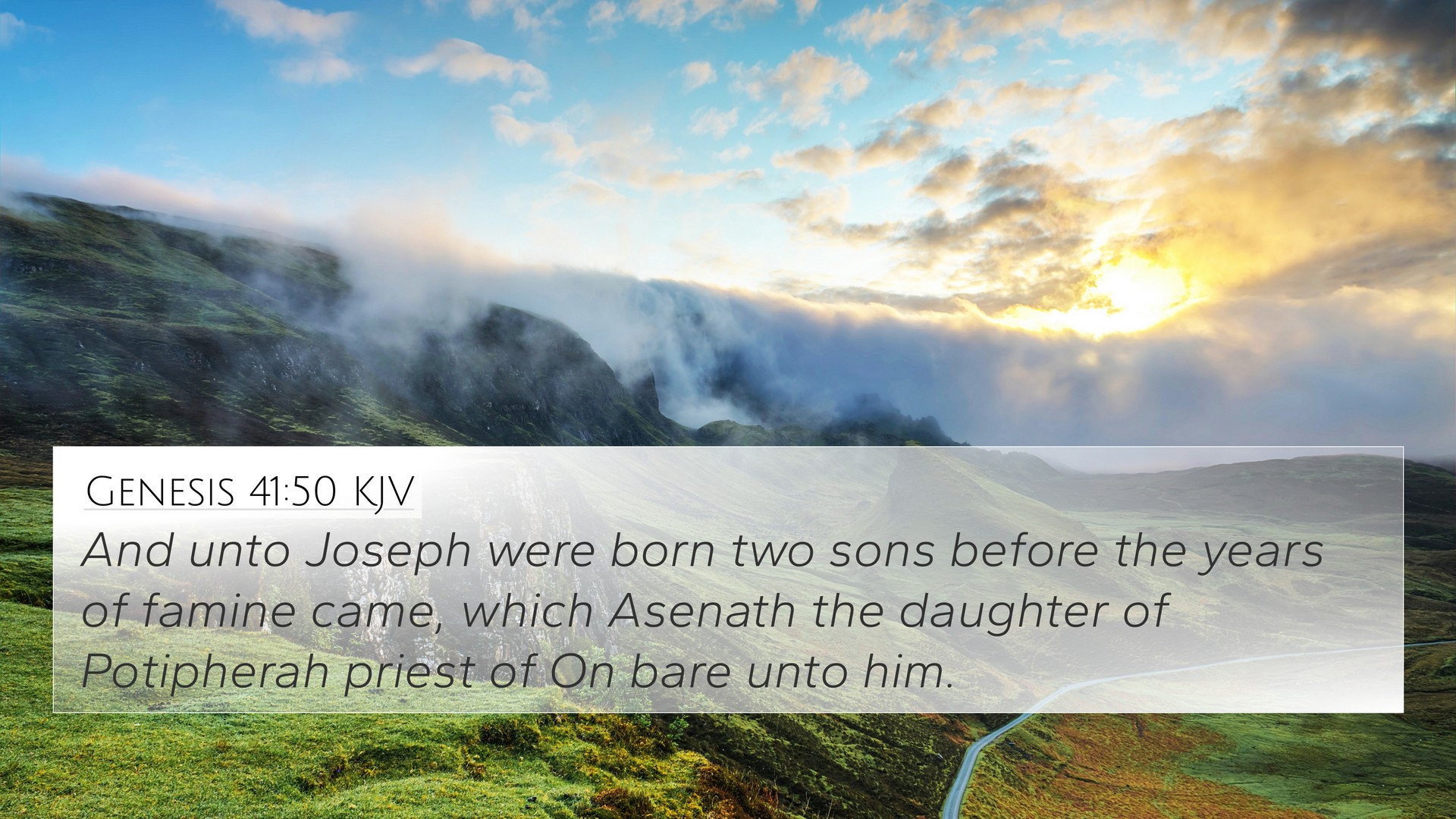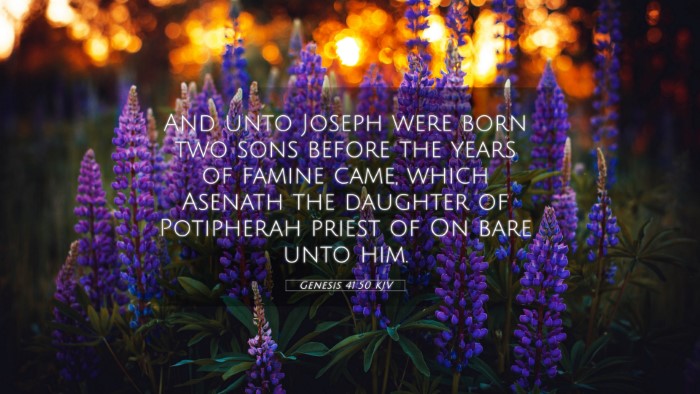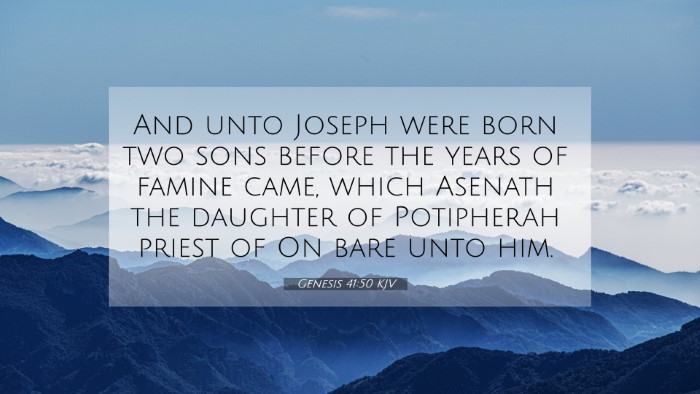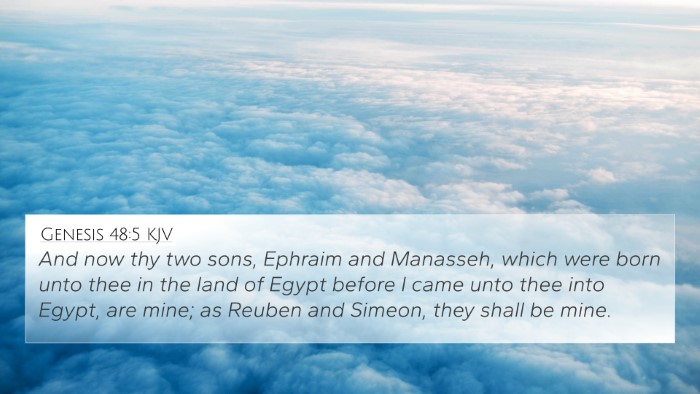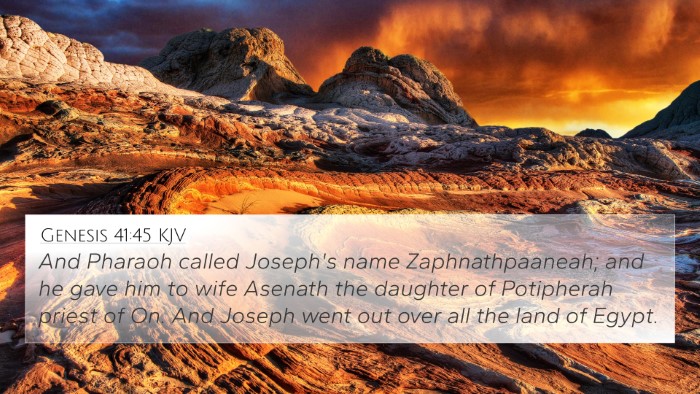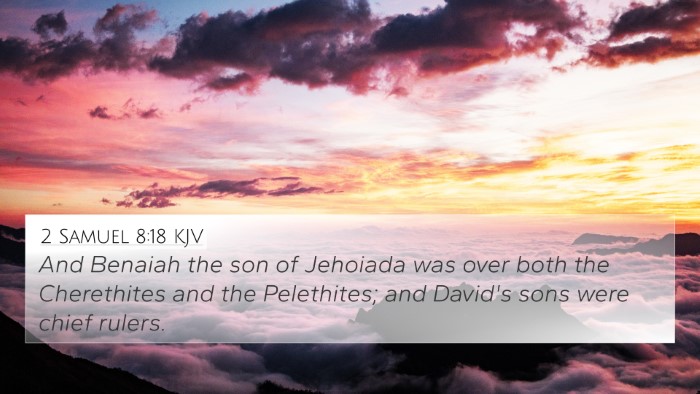Understanding Genesis 41:50
Genesis 41:50 states:
"And unto Joseph were born two sons before the years of famine came, which Asenath the daughter of Potipherah priest of On bare unto him." (Genesis 41:50, KJV)
Summary of Genesis 41:50
This verse marks a pivotal moment in Joseph's life as it highlights the birth of his two sons, Manasseh and Ephraim, before the impending famine that would affect Egypt and the surrounding regions. The mention of Asenath, Joseph's Egyptian wife, signifies not only Joseph's assimilation into Egyptian society but also introduces the future significance of his sons in the history of Israel.
Commentary Insights
Matthew Henry's Commentary
Matthew Henry emphasizes the divine providence in Joseph's life, particularly emphasizing that the birth of his sons symbolizes God's faithfulness and blessings during times of prosperity. His sons, Manasseh (meaning "to forget") and Ephraim (meaning "fruitful"), represent Joseph's ability to overcome his past and prosper in a foreign land. Henry further notes that God, who had prospered Joseph, allowed him to enjoy the fruits of that prosperity via his family. This familial blessing would later play a crucial role in the history and heritage of the Israelites.
Albert Barnes' Notes
Albert Barnes highlights the cultural significance of Joseph marrying an Egyptian and having children within that context. The union signifies a bridge between Joseph’s Hebrew heritage and the Egyptian society he served. Barnes identifies that the naming of the sons reflects Joseph’s faith and a sense of his identity amidst a foreign culture. The name "Manasseh" suggests a moment of healing from his past grievances, while "Ephraim" indicates his fruitful multiplication, which likewise points to Joseph's rise in status and blessings in his current situation.
Adam Clarke's Commentary
Adam Clarke focuses on the implications of Joseph's successes and failures leading up to this moment. He notes that while Joseph suffered tremendously, God's providence turned his situation into one of abundance and family. Clarke underlines that the children born to Joseph become representational of the tribes of Israel, encompassing both heritage and legacy. This moment serves as a critical link in the genealogical chain leading to later biblical events, underscoring the importance of understanding family in the context of God's plan.
Bible Cross-References
The following passages relate to Genesis 41:50 and provide deeper insights:
- Genesis 30:22-24 - The birth of Joseph's brothers, establishing his familial context.
- Genesis 48:1-5 - The blessing of Joseph's sons by Jacob, emphasizing their significance.
- Genesis 37:36 - Joseph’s sale into Egypt, demonstrating his journey from hardship to prosperity.
- Exodus 1:5 - Acknowledgment of Joseph's legacy through the Israelites’ increase in numbers.
- 1 Chronicles 5:1-2 - The lineage of Joseph and the importance of his descendants in Israel’s history.
- Hebrews 11:21 - Reflection on Joseph’s faith in blessing his sons as part of the promise to Israel.
- Acts 7:9-14 - Stephen's recounting of Joseph's life, linking to his larger role in Israel's narrative.
Themes from Genesis 41:50
Several significant themes can be derived from this verse:
- Divine Providence: The assurance that God guides and blesses those who are faithful, even in foreign lands.
- Identity and Heritage: The balance between Joseph's Hebrew roots and his role within Egyptian society.
- Family Legacy: The importance of descendants and how they will influence the nation of Israel.
- Restoration and Healing: Joseph's journey from suffering to a life of blessing, symbolized through his children.
Conclusion
Genesis 41:50 is more than a straightforward historical account; it is intertwined with profound theological implications about God’s faithfulness, identity, and the legacy carried forward through family. The births of Joseph’s sons are not merely personal milestones but are indicative of God’s overarching plan for His people.
Further Study and Resources
For those interested in delving deeper into the connections and interpretations of Bible verses, consider utilizing tools for Bible cross-referencing or a Bible cross-reference guide. Engaging with a comprehensive Bible concordance can also enrich your study, helping you identify connections between scriptures and thematic explorations.
Useful Cross-Referencing Questions
- What verses are related to Genesis 41:50?
- How do Genesis 41:50 and Genesis 48:1-5 connect?
- Find cross-references for Joseph’s narrative in the Gospels.
By examining Genesis 41:50 through the lenses of traditional commentaries and thematic analysis, we uncover layers of meaning that resonate throughout the wider biblical narrative.
